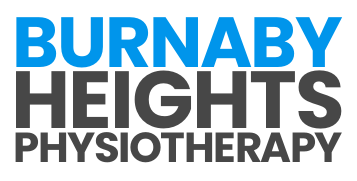
Comparing Acupuncture and Dry Needling: Which One is Right For You?
July 29, 2025
Custom Acupuncture Plans: Targeted Relief and Improved Outcomes
August 29, 2025Physiotherapy is often associated with recovery from injuries, but its benefits extend far beyond that. It plays a crucial role in supporting general fitness and enhancing overall health. By incorporating physiotherapy into your fitness regimen, you can improve your physical condition, prevent injuries, and achieve your fitness goals more effectively. In this blog, we’ll explore how physiotherapy supports fitness, aids in injury prevention, helps achieve specific fitness objectives, and complements regular workout routines.
How Does Physiotherapy Benefit General Health and Fitness?
Physiotherapy benefits general health and fitness by enhancing mobility, improving strength, and providing personalized exercise programs tailored to individual needs. It also aids in maintaining a balanced body structure, which is crucial for overall well-being. Through targeted exercises and stretches, physiotherapy can significantly contribute to improved flexibility and better posture.
- Improved Mobility: Physiotherapy helps increase joint range of motion and muscle flexibility, allowing for smoother and more efficient body movements.
- Enhanced Strength: Through resistance exercises and strength training, physiotherapists help individuals build muscle strength, supporting overall physical health.
- Personalized Exercise Programs: Each program is tailored to the individual’s specific needs, considering their physical condition and fitness goals.
- Better Posture: Physiotherapy addresses postural imbalances, reducing strain on muscles and joints and promoting a healthier alignment.
- Pain Management: Physiotherapy techniques, such as manual therapy and therapeutic exercises, can alleviate chronic pain, improving quality of life.
- Increased Flexibility: Targeted stretching routines enhance muscle flexibility, reducing stiffness and improving functional movement.
- Stress Reduction: Physiotherapy sessions can also include relaxation techniques that help reduce stress and promote mental health.
In summary, physiotherapy enhances general fitness by improving mobility, strength, and posture, while also offering personalized programs that cater to individual needs.
Can Physiotherapy Help Prevent Injuries During Exercise and Training?
Yes, physiotherapy can help prevent injuries during exercise and training by assessing biomechanical issues, strengthening muscles, and educating individuals on proper techniques. By focusing on these areas, physiotherapists can minimize the risk of injuries and ensure safer physical activity.
Physiotherapists conduct thorough assessments to identify any biomechanical imbalances or weaknesses that may predispose an individual to injuries. They then design specific exercise regimens to address these issues, focusing on strengthening weak muscles and enhancing flexibility. Education on proper form and technique is another critical aspect, as incorrect movement patterns often lead to injuries during workouts. Furthermore, physiotherapists provide guidance on the appropriate progression of exercise intensity, ensuring that individuals do not overexert themselves, which can lead to injuries. Additionally, physiotherapists can advise on the correct use of equipment and gear, reducing the risk of accidents.
Overall, physiotherapy plays a pivotal role in injury prevention by addressing biomechanical issues, educating on proper techniques, and guiding safe exercise progression.
What Fitness Goals Can Physiotherapy Help Me Achieve?
Physiotherapy can help achieve various fitness goals, including improved endurance, increased flexibility, and enhanced muscle strength. By tailoring exercise programs and providing professional guidance, physiotherapists enable individuals to reach their specific fitness objectives effectively.
| Increased Endurance | Physiotherapy can include cardiovascular exercises that build stamina, allowing individuals to perform physical activities for longer durations. |
| Enhanced Flexibility | Stretching routines and mobility exercises improve joint flexibility, which is vital for executing movements with ease. |
| Boosted Muscle Strength | Targeted strength training exercises help build muscle mass and improve overall strength. |
| Weight Management | Physiotherapy can assist in developing exercise plans that support weight loss or maintenance. |
| Improved Balance | Balance exercises help prevent falls and improve coordination, essential for various sports and daily activities. |
| Pain Reduction | Through therapeutic exercises, physiotherapy can alleviate chronic pain, enabling individuals to pursue fitness goals without discomfort. |
| Posture Correction | Addressing postural issues not only improves appearance but also enhances functional performance. |
In short, physiotherapy is instrumental in achieving fitness goals by improving endurance, flexibility, and muscle strength while offering tailored strategies for each individual.
What Are the Benefits of Physiotherapy for Professional Athletes?
Physiotherapy offers several benefits for professional athletes, including enhanced performance, faster recovery, and injury prevention. By providing specialized programs and professional advice, physiotherapy ensures athletes maintain peak physical condition.
- Performance Enhancement: Physiotherapy helps optimize athletes’ physical capabilities through tailored training and conditioning programs.
- Injury Prevention: By assessing and addressing potential risk factors, physiotherapy reduces the likelihood of injuries, keeping athletes in the game.
- Faster Recovery: Physiotherapy techniques expedite recovery from injuries, enabling athletes to return to training and competition swiftly.
- Pain Management: Physiotherapists use manual therapy and therapeutic exercises to manage pain, ensuring athletes can perform without discomfort.
- Improved Flexibility: Stretching and mobility exercises enhance flexibility, allowing athletes to perform movements with greater efficiency.
- Muscle Imbalance Correction: Physiotherapy addresses muscle imbalances, reducing the risk of strain and enhancing performance.
- Psychological Benefits: The therapeutic environment and support from physiotherapists can boost an athlete’s mental well-being.
- Custom Rehabilitation Programs: Tailored rehabilitation programs ensure recovery is aligned with specific athletic demands.
In summary, physiotherapy benefits professional athletes by enhancing performance, preventing injuries, and facilitating faster recovery through specialized programs.
How Does Physiotherapy Complement a Regular Workout Routine?
Physiotherapy complements a regular workout routine by providing injury prevention, improving flexibility, and offering personalized training programs. These elements ensure that individuals maximize their workout benefits while minimizing risks.
- Improved Flexibility: Stretching routines and exercises enhance flexibility, allowing for a broader range of motion during workouts.
- Personalized Training Programs: Tailored programs ensure that exercises are aligned with the individual’s fitness goals and physical condition.
- Correct Form and Technique: Physiotherapists provide guidance on proper exercise techniques, preventing injuries caused by incorrect form.
- Balanced Muscle Development: Physiotherapy addresses muscle imbalances, promoting even muscle development.
- Pain Management: Techniques such as manual therapy alleviate pain, enabling individuals to continue their workout routines without interruption.
In brief, physiotherapy enhances workout routines by providing injury prevention, flexibility improvement, and personalized training, ensuring optimal fitness results.
Can Physiotherapy Speed Up Recovery After Intense Workouts?
Yes, physiotherapy can speed up recovery after intense workouts by reducing muscle soreness, improving circulation, and providing tailored recovery plans. These strategies help individuals return to their fitness routines more quickly and efficiently.
| Reduced Muscle Soreness | Techniques such as massage therapy help alleviate muscle soreness, promoting faster recovery. |
| Improved Circulation | Physiotherapy exercises enhance blood flow, accelerating the delivery of nutrients to muscles and aiding in waste removal. |
| Tailored Recovery Plans | Physiotherapists create customized recovery programs that address individual needs and fitness levels. |
| Pain Alleviation | Manual therapy techniques reduce pain, allowing individuals to recover without prolonged discomfort. |
| Enhanced Flexibility | Stretching routines help maintain muscle elasticity, preventing stiffness after intense workouts. |
| Stress Reduction | Relaxation techniques incorporated in physiotherapy sessions can reduce stress, promoting overall recovery. |
| Joint Mobilization | Techniques to improve joint movement support effective recovery by preventing stiffness. |
The key takeaways are that physiotherapy supports faster recovery by reducing soreness, improving circulation, and offering personalized recovery strategies.
How Often Should You Attend Physiotherapy for Fitness Benefits?
The frequency of physiotherapy sessions for fitness benefits varies depending on individual goals, physical condition, and specific needs. Generally, attending sessions once or twice a week can provide significant benefits, allowing for consistent progress and adaptation.
Regular sessions ensure that individuals maintain proper form, effectively manage any pain or discomfort, and continue to build strength and flexibility. For those recovering from injuries, more frequent sessions may be necessary to facilitate a quicker recovery. On the other hand, individuals aiming to enhance their overall fitness might benefit from less frequent visits, focusing more on long-term maintenance and injury prevention. A physiotherapist can provide guidance on the optimal frequency based on personal objectives and progress.
In summary, attending physiotherapy once or twice a week is beneficial for fitness, but the exact frequency should be tailored to individual needs and goals.
Enhanced Well-Being Starts Here
Physiotherapy is an invaluable resource for anyone looking to improve their fitness and overall health. Whether you’re a beginner or a seasoned athlete, physiotherapy offers a range of benefits, from injury prevention and recovery to personalized exercise plans and enhanced performance.
Burnaby Heights Physiotherapy is ready to assist you in achieving your fitness goals with tailored support and professional guidance. Reach out to us to start your journey towards better health and fitness today.
Frequently Asked Questions
What Conditions Can Physiotherapy Help With?
Physiotherapy can assist with a variety of conditions, including musculoskeletal issues, sports injuries, and chronic pain. It is also beneficial for improving mobility, enhancing strength, and preventing future injuries.
How Does Physiotherapy Improve Flexibility?
Physiotherapy improves flexibility through targeted stretching exercises and techniques that enhance muscle elasticity and joint range of motion. This leads to better functional movement and reduced stiffness.
Is Physiotherapy Suitable for All Ages?
Yes, physiotherapy is suitable for individuals of all ages. It offers tailored programs to address the specific needs and goals of children, adults, and seniors, promoting health and fitness across the lifespan.
Can Physiotherapy Help with Chronic Pain Management?
Physiotherapy can significantly aid in managing chronic pain through therapeutic exercises, manual therapy, and pain-relief techniques, improving quality of life and physical function.
How Do I Know If I Need Physiotherapy?
If you experience pain, limited mobility, or wish to improve your fitness levels, consulting a physiotherapist can be beneficial. They can assess your condition and recommend a suitable plan to address your needs.






